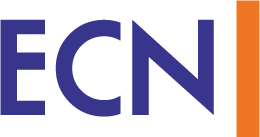Securing Hospital Workplaces
How can hospitals not just boost quality of care, but also upgrade security? Dr. Nils Kaufmann, OGiTiX Software, explains how the merger of two health tech giants creates a 360° IAM set of solutions for hospitals.

© Natali_Mis| istockphoto.com
Side-by-side with Germany’s demographic development, there is an increasing demand for health and care resources. At the same time, when it comes to patient care, a critical factor is a shortage of nursing staff. The system must therefore boost operational efficiency while ensuring compliance.
While digital technologies in hospitals are offering many opportunities to improve healthcare, the German healthcare sector is smack in the middle of digital transformation. With funding such as the German 2020 Hospital Futures Act (KHZG), healthcare facilities are being incentivized to undergo modernization to ensure that the healthcare system remains efficient and fit for the future. The German federal government is providing three billion Euro for hospitals to invest in their digitalization. Digital tools improve the quality of patient care, but in addition to investments in digitalization projects, the Hospital Futures Act contains clear guidelines on IT security: 15 percent of the funds must go towards the P10 funding project – namely, measures to ensure the availability, integrity, and confidentiality of IT systems.
How IAM solutions make everyday hospital life more secure, efficient, and user-friendly
In hospitals, states of emergency are the norm and security measures often get overlooked in such hectic scenarios. On top of that, the frequent switch in users coming into hospitals can also lead to regular change among access rights for devices.
To ensure compliance, hospitals need to make sure their systems and databases are protected with the latest security protocols. Letting the right people in and keeping the wrong people out has never been so important.
In practice, however, security can often be a stumbling block, so it is not uncommon to resort to makeshift solutions such as generic user accounts, unlocked workstations, and shared passwords or passwords left on post-its.
This is where digital identities come into play: namely, unique digital profiles that are assigned to a person and allow their identity to be verified and authenticated. Such an approach can control access to confidential patient data and ensure that only authorized people can access this information. In turn, digital identities also ensure that patients receive the right medical care by having their identity correctly recorded and verified.
IAM (Identity and Access Management) solutions create a high level of security and ensure the adherence to compliance regulations. They guarantee process conformity and reduce not only human errors, but also the workload. In this way, they free up resources for added-value Hospital Future Act projects.
Imprivata’s core and baseline product is SSO (Single Sign-On), which is a great starting point for guaranteeing security and implementing a digital IAM project. SSO solutions simplify and control access to various systems and applications. Rather than having to enter their credentials each time, authorized employees only need to log in once to gain access to all relevant systems. By reducing the need for passwords, this not only improves workflows, but also promotes security. And, last but not least, it saves time and money.
What’s more, SSO is quick to implement, saves resources, and has been proven to increase the use of other digital solutions such as electronic medical records (EMRs) by providing clinicians with seamless and secure access to systems.
Imprivata and Ogitix: Security is teamwork
For a long time now, a simple bit of tweaking here and there has been of little value. Hospitals need a comprehensive and integrated range of digital identity solutions that support data and IT security, workflow, and compliance. What is therefore good news for the industry? Namely: the merger of the companies Imprivata and OGiTiX.
The German software provider OGiTiX specializes in IAM solutions for the DACH region, while the US company Imprivata is an expert in digital identity for healthcare and an SSO specialist in system-relevant industries.
The combined portfolio offers hospitals a unique, all-in-one solution designed specifically for healthcare: a comprehensive and tightly integrated set of solutions for the DACH market that includes provisioning, lifecycle and access management, and a single sign-on – free from a fragmented vendor environment.
Through the combined Imprivata and OGiTiX unimate platforms, customers receive comprehensive IAM solutions; these are the only solutions featuring the dedicated integration within the key hospital information system in the DACH region – namely the Dedalus “ORBIS.”
Automating identity management provides fast and secure access, which boosts operational efficiency and organizational resilience and addresses security and compliance challenges. Imprivata and OgiTiX’s joint solution portfolio is eligible for funding under the Hospital Future Act for IT security, data protection, and compliance.
Dr. Nils Kaufmann is Chief Market Development DACH at Imprivata Inc., founder of the EuroCloud Native Initiative, and co-author of the GAIA-X Technical Architecture Paper on behalf of the BMWi. Most recently, he was Group COO and Board Member of the Release42 Group, co-founder of cloudbuddies, and was for many years in the management of leading managed service providers.
Please note: The opinions expressed in Industry Insights published by dotmagazine are the author’s or interview partner’s own and do not necessarily reflect the view of the publisher, eco – Association of the Internet Industry.





